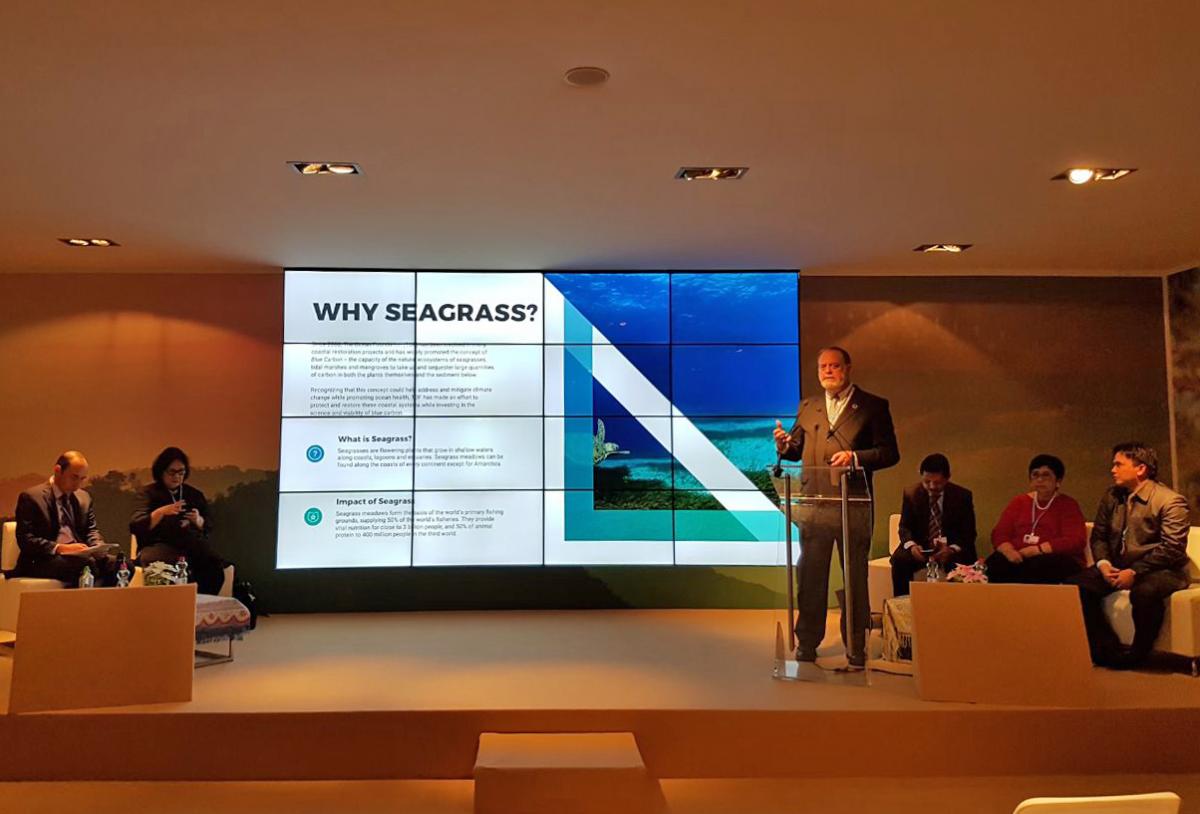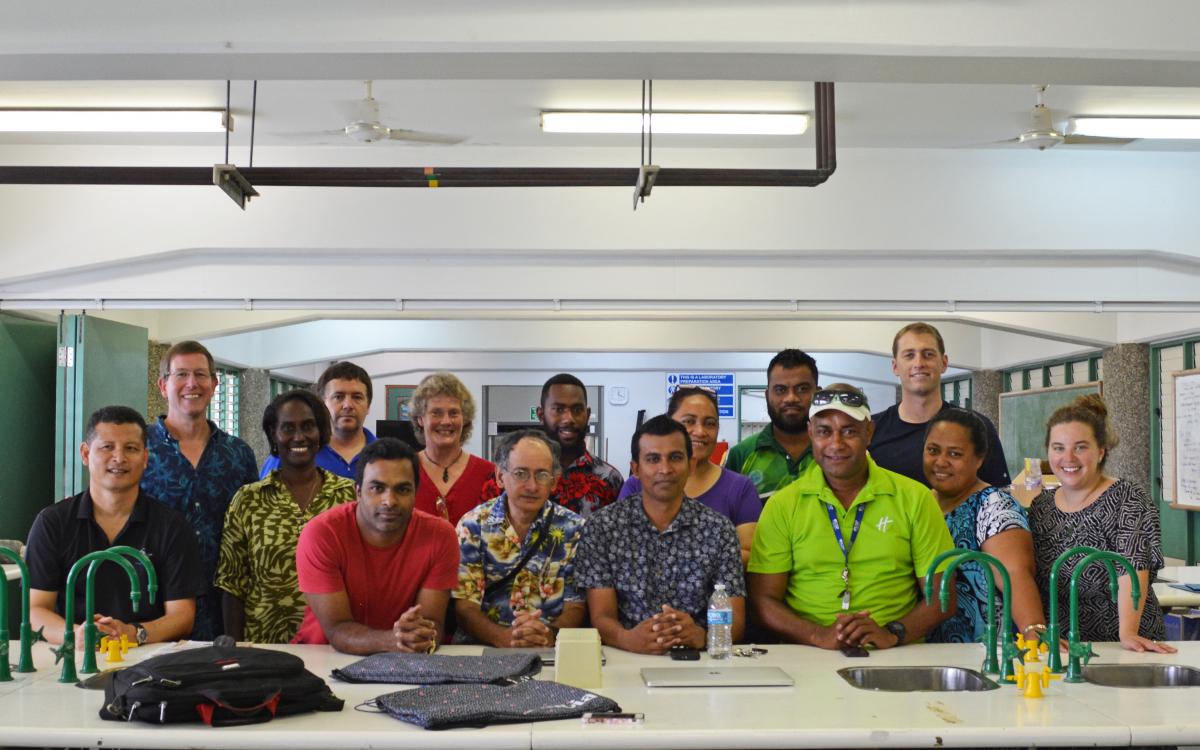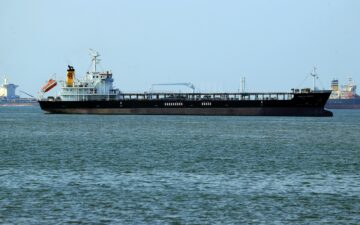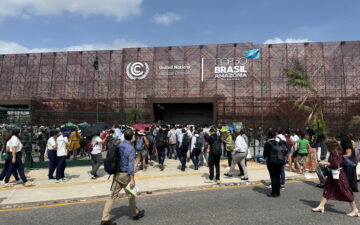Climate Resilience and The Future
@COP23
#oceanforclimate
#becausetheocean
In the wake of the major Atlantic hurricanes and the resulting damage to human and marine communities alike, The Ocean Foundation received dozens of requests for help. Many of our partners and colleagues were still without power or anxiously awaiting news about the damage from the storm. Some were focused on rebuilding critical marine science infrastructure. Others sought to expand the capacity of communities to monitor water quality and other effects in the wake of floods, debris flows, and other harms. The overarching and underlying theme was rebuilding communities and the energy, communications, and water infrastructure to support them in such a way as to minimize the disruption from the next storm. We began by establishing special sites to gather funds: The Hurricane Irma Recovery Fund and The Cuba Recovery Fund. And we began to review the many options for supporting the projects that would reduce the harm to the ocean and the nearshore coastal waters as part of the critical underpinning of island life.

Hurricane Irma struck the Camaguey Archipelago on Cuba’s north central coast in Cuba
As part of our review process, I reached out to The Ocean Foundation’s Board of Advisors to solicit their ideas about resilience and recovery from climate disruption. As always, I received diverse and important input from our advisors who can be found all over the world. I heard from those who could say, “I can relate first-hand having gone through hurricanes in the past, and seen how this affected the countries. The intensity has increased with increased impact.” Another wrote, “We must focus on restoring mangroves and seagrass and marshes so that the effects of these storms can be reduced.” Another wrote that the need is at a scale that requires big picture thinking and significant resources to rebuild and upgrade coastal communities in a way that considers the future, not just responds to the immediate effects of the storms. So many advisors had so many helpful things to share, I remain humbled and grateful by the generosity of spirit and genuine passion of The Ocean Foundation community.

TOF President, Mark Spalding speaking at COP23 in Bonn
At the time, I was on my way home from the Our Ocean conference in Malta where Prince Charles of the UK, Prince Albert of Monaco, and former US Secretary of State John Kerry had given inspirational speeches. The conference had upbeat commitments being made by dozens of passionate ocean leaders. Yet, it coincided with new reports about regional vulnerability in a world of warming and rising seas and changing weather patterns. The kind of reports that may be easier to ignore than to recognize as real signals that the time for action is now. Of course, our community knows that we have no choice.
Those ocean and coastal vulnerabilities were again on my mind as I spent a week in Fiji with The Ocean Foundation team focused on building scientific capacity to understand and governance structures to respond to ocean chemistry changes in the Western Pacific. The workshop participants included people from Kiribati, Republic of the Marshall Islands, the Federated States of Micronesia, Nauru, Palau, Samoa, Solomon Islands, Tokelau, Tonga, Tuvalu, Vanuatu, Papua New Guinea and of course Fiji itself. It was exciting to be there with people who are so willing to embrace learning about the science and applying it to their country’s needs.

The Ocean Acidification monitoring workshop participants and trainers in Fiji
COP23, a.k.a the 23rd United Nations Climate Change Conference was co-hosted by Fiji and Germany this year. I was in Bonn with tens of thousands of other people gathered to look at next steps to reach the goals of the Paris Agreement from COP22, and thus to address the causes and the effects of a changing climate. My role was to talk about blue carbon as a way to take up and naturally sequester atmospheric carbon from our emissions via photosynthesis by seagrasses, saltmarsh grasses, mangroves and phytoplankton.
With this in mind, and because of the ocean’s economic importance and key role in regulating the climate, Fiji as President of COP23 has called for partnership to pursue an “Ocean Pathway” that creates an ocean inclusive UNFCCC process and recognizes the underlying need of vulnerable small island and coastal states to protect food security, coastal human habitat, and preserve other critical coastal and ocean ecosystem services. In addition, the EU hosted its first ever Ocean Day on the 10th, and the Global Ocean Forum in partnership with other NGOs organized it annual Ocean Action Day on November 11th. As a founding member of the Ocean and Climate Platform, The Ocean Foundation is grateful that 71% of our planet gets the special recognition it deserves.

Ocean Actions Day at COP23 in Bonn
Thus, as I fly home, I am trying to carry the good news, the good will, and the optimism of all of the people who continue to work towards a healthier planet. For all of us, these gatherings can renew our shared goals and optimistic vision that in turn supports our collective persistence and hard work on behalf of our global health and future well-being—even when it seems that short-sighted actions with horrid long-term consequences threaten to upend our legacy and cripple future generations.






